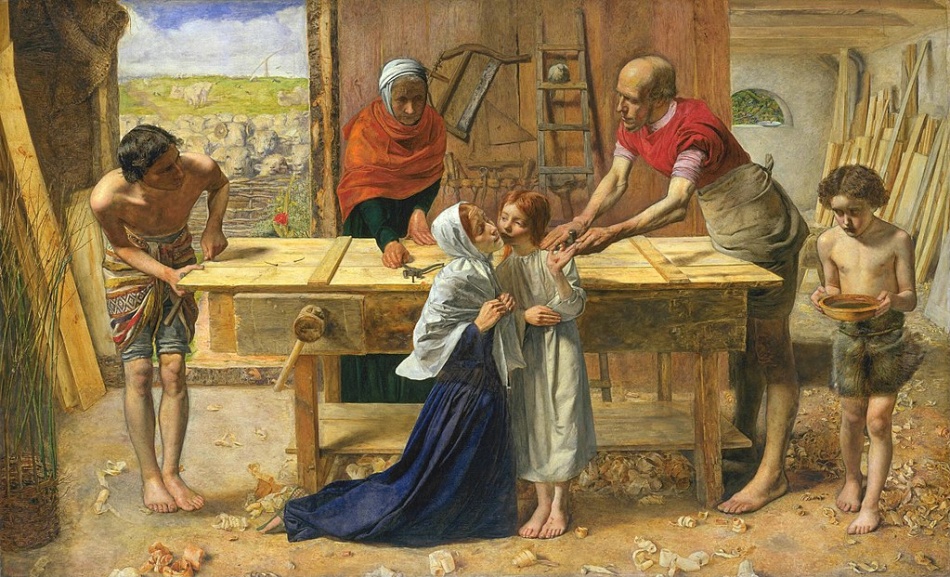Finding God in an Unexpected Place
 When John Everett Millais’ Christ in the House of His Parents was first displayed at the Royal Academy, the public response was near-universal revulsion.
When John Everett Millais’ Christ in the House of His Parents was first displayed at the Royal Academy, the public response was near-universal revulsion.
Editor’s Reflections: On Incarnational Coherence
Beneath the Basilica of the Annunciation in Nazareth is the place where tradition tells us the Angel appeared to the Blessed Virgin Mary. An altar stands in this grotto, inscribed with these words: “verbum caro hic factum est” (the Word became flesh here).
AD: Parish App that Keeps You Connected--Free Download
Stay connected to your parish or school. Download myParishApp here for free.

This is a paid advertisement in the July-September 2021 issue. Advertisements should not be viewed as endorsements from the publisher.
Catholic Schools: Lessons Learned from an Iraqi School
"The Church is alive in Iraz, and Christ is alive in Iraq."
Pope Francis, March 7, 2021 Erbil, Iraz
On my fiftieth birthday, I received as a gift a detailed map of the world. The map holds pins of places traveled on behalf of Franciscan University of Steubenville and the names of cohort members in the Master of Catholic Leadership graduate program, of which I am the director. Each name on the map is significant as is the story of how they have come to their leadership role.
In March of 2021, I had the privilege of adding my own pin to this map. Along with Fr. David Pivonka, TOR, and Dr. Daniel Kempton, Vice President for Academic Affairs, I traveled to Erbil, Iraq at the invitation of Archbishop Bashar Warda. Our trip coincided with Pope Francis’s historic visit to Iraq.
Practicing Organic Reading with the Catechism
In its “practical directions” for reading the Catechism the authors have placed a brief instruction:
This catechism is conceived as an organic presentation of the Catholic faith in its entirety. It should be seen therefore as a unified whole. Numerous cross-references in the margin of the text (numbers found at the end of a sentence referring to other paragraphs that deal with the same theme), as well as the analytical index at the end of the volume, allow the reader to view each theme in its relationship with the entirety of the faith.[1]
What is the meaning of such a direction? What would such a practice look like? How should it be undertaken and what is its value?
From the Shepherds: Formation in Digital Media
In 2020, the Shepherds of the Church gave us a treasure in the new Directory for Catechesis. Dr. Farey was a member of the working party for the bishops on the new Directory and shares additional reflections on its practical implications in this issue and the next two issues.
Measuring Success
There is an uncomfortable reality of spiritual multiplication with which we catechists, ministers, and missionaries must wrestle. That reality is this: spiritual multiplication produces results, but not always in the way we imagine.
Freeing Up for Mission: Critical Steps for the Path Forward
Early Memories

Editor's Reflections: Forming Disciples who Make Disciples
 It was yet another miraculous catch of fish.
It was yet another miraculous catch of fish.
Sanctifying Your Spending
If you were being investigated and the detective had access to highly detailed records of your personal income and spending, what would this evidence reveal about your Christian commitment? How does your credit card transaction registry provide a clue to the seriousness of your Christian faith?
Do these questions sound strange? Oftentimes we aren’t very thoughtful about the relationship between money and faith, yet the way we spend our money reveals quite a bit about who we are and what we value.


